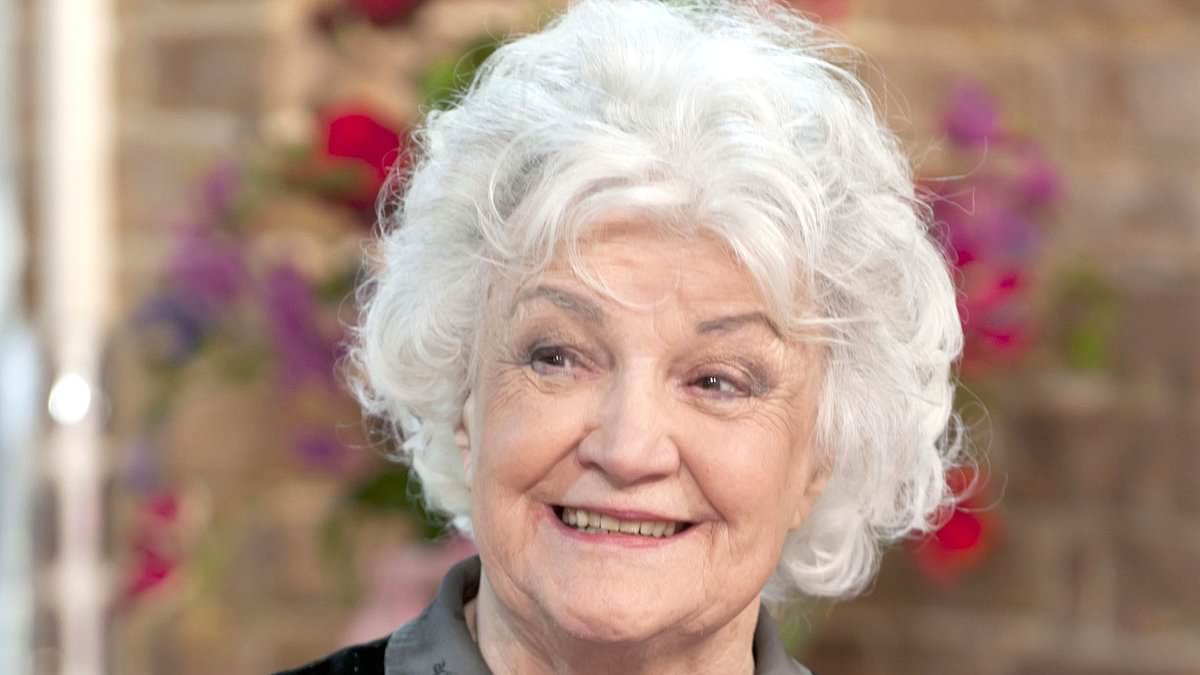Veteran actress Jean Boht who starred as Ma Boswell in the BBC sitcom Bread left more than £2.6million in her will, can reveal.
Boht, who died aged 91 from Alzheimer’s complications on September 12, 2023, played acid tongued matriarch Nellie Boswell in the hugely popular TV series.
Her character Ma Boswell ruled over her working class family with an iron fist as they tried to make cash to survive through illicit and legal moneymaking schemes.
But can reveal that Boht, real name Jean Davis, left an estate worth £2,634,969 reduced to a net figure of £2,621,271 after payment of liabilities.
Her will left everything to her two filmmaker daughters Hannah Law, 52, and Jessie Stevenson, 50, probate records disclose.
Boht’s second husband, BAFTA award-winning American-British conductor and composer Carl Davis, died aged 86, just six weeks before her on August 3, 2023.
He had been hugely successful and wrote the music for film classic The French Lieutenant’s Woman in 1981 and the BBC drama Pride and Prejudice in 1995.
Boht had a long and distinguished career on stage and screen, and appeared in numerous other TV shows such as Softly Softly, Some Mothers Do ‘Ave ‘Em, Last Of The Summer Wine, Grange Hill, Juliet Bravo, Boys From The Blackstuff and Doctors.
But she was best known for her role in Bread, created by writer Carla Lane, and starred in all seven series of the much-loved sitcom from 1986 to 1991.
Boht’s role in the show saw her named as BBC TV Personality 1988 by the Variety Club of Great Britain, and won her a British Comedy Award for best TV comedy actress in 1990.
Her character was forever trying to make sure her children contributed to their upkeep as she struggled to keep wayward husband Freddie away from his mistress Lilo Lil who was referred to as ‘that tart’.
The show was such a success that 21 million viewers tuned in to watch the wedding of Nellie’s daughter Aveline, played by Gilly Coman, to Oswald, played by Giles Watling, making it the second most popular show of the year in 1988, behind only EastEnders.
There were regular complaints about its bad language before the 9pm watershed while some in Liverpool accused the programme of stereotyping Scousers as work-shy benefit cheats.
In 1991, when the series ended, Boht toured Britain in the stage show, Bread – The Final Slice.
Boht then went on to star with Sheila Hancock, Wendy Craig and Sheila Gish in the comedy Brighton Belles, a British remake of the American hit The Golden Girls, screened between 1993 and 1994.
She revealed in an interview in 2012 how she had never tuned in to watch Bread at home when it was first screened.
Boht said: ‘I never watched it at the time. It’s too horrendous for actors to see themselves on screen, so I had no idea what it looked like. But now, when I catch it, I am just astounded at how good it was and how very funny.’
At the time of her death , she was living in the Denville Hall care home for actors and people in the entertainment industry.
The actress was born in Bebington, Cheshire in 1932 and attended Wirral Grammar School for Girls. Her father Thomas Dance was a confectionery importer and chief entertainment officer of the local fire brigade, while her mother Edna was a pianist.
As a child, she and her sister joined their parents in a Dance Family troupe putting on shows in the wartime blitz at service camps and hospitals across Cheshire and Lancashire.
Boht’s professional career began as a £1-a-week apprentice at the Liverpool Playhouse before she joined as a full time actor and assistant stage manager.
She made her West End debut in 1964, and went on to appear in the Bristol Old Vic and before returning to Liverpool to appear alongside Sir Anthony Hopkins, Lynda La Plante and Sir Patrick Stewart.
Boht also starred at the Royal Court, the National Theatre and at the Chichester Festival, as well as numerous West End theatres.
Her film roles included appearances in The Girl in a Swing, Bad Night for the Blues and Mothers and Daughters.
Boht’s first marriage, to cinema boss William Boht who was 30 years her senior, ended in divorce in 1970.
Her family paid tribute to her after her death, saying: ‘Jean had been battling vascular dementia and Alzheimer’s disease with the indefatigable spirit for which she was both beloved and renowned.’
The statement also thanked Denville Hall staff for taking ‘such wonderful care of Jean and also to the staff at Hillingdon Hospital who made her so comfortable’.
